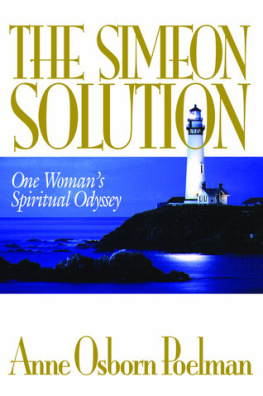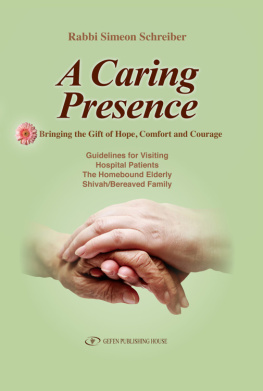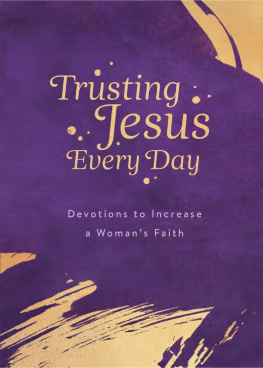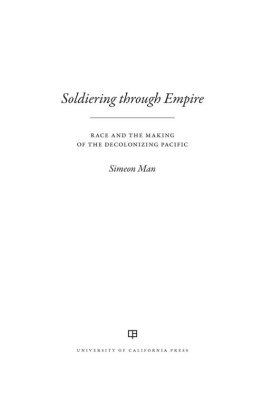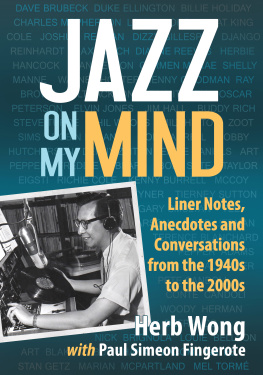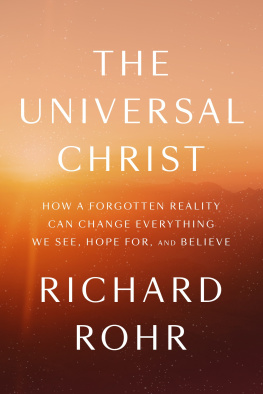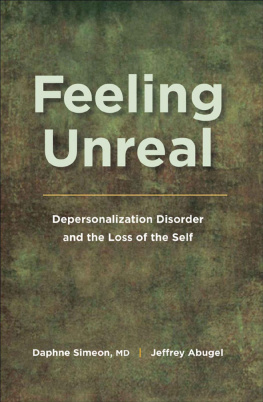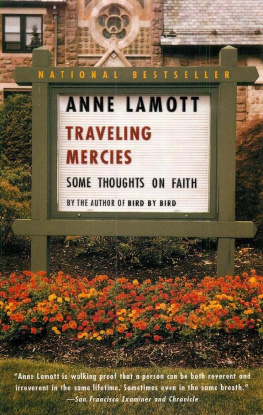Simeon Solution: One Woman's Spiritual Odyssey
Anne Osborn Poelman
1994 Deseret Book CompanyAll rights reserved. No part of this book may be reproduced in any form or by any means without permission in writing from the publisher, Deseret Book Company, P.O. Box 30178, Salt Lake City, Utah 84130. This work is not an official publication of The Church of Jesus Christ of Latter-day Saints. The views expressed herein are the responsibility of the author and do not necessarily represent the position of the Church or of Deseret Book Company.Deseret Book is a registered trademark of Deseret Book Company.
Introduction
As a very young child I wanted to know: Is there a God? If there is, does he truly care about his creation and his children? Does God know me, even if I don't know him? Is he aware of and interested in me as an individual? Does he still work miracles? Would he work them in my life?
I don't really think I was unusual. We all want answers to our most deeply felt questions. Each of us is born with an innate longing for our eternal, spiritual home. Life itself is largely an ongoing search for eternal verities.
This book is in part an autobiographical account of my own personal spiritual odyssey. The events related here actually happened. In some instances I have changed the names of certain individuals to preserve their privacy. Writing from the perspective of years or even decades after the dialogues transpired, it is difficult to quote them exactly. I have nevertheless attempted to convey the content and spirit of the interchanges as they took place.
In this book I will share with you how I learned that there is indeed a God, a loving Heavenly Father who is actively and intimately involved in our liveswho knows and cares about us individually and personally.
I will also tell you how I discovered the Lord's church, The Church of Jesus Christ of Latter-day Saints, and how my faith in its fundamental, straightforward teachings evolved and grew. And finally, I'll share the "Simeon Solution" with you. These simple, gospel-centered principles have given me the confidence to face life's inevitable challenges with equanimity. In the midst of disappointment and uncertainty, we can create our own spiritual "places of safety" that provide a sure haven from the storms of personal adversity.
Please make no mistake about it: This book is written squarely from the center of the Latter-day Saint mainstream. If you are searching for a feminist perspective, look elsewhere. If you hope to find a closet Church rebel, you'll be gravely disappointed.
If what you really want is the perspective of an LDS professional woman who believes that quiet accomplishments speak volumes more than strident polemics, a person who knows that Church members aren't perfect yet is totally committed to the Church, and who trusts implicitly in the eternal perspective, read on. This book is for you.
Chapter 1
The Simeon Solution
It had been one of those golden evenings. You know the kind: seamless. The dinner guests rave enthusiastically about the food, cheerfully help clear the table afterward, then move into the living room where they relax and chat amiably in front of the fireplace. It's snowing outside, adding a snug, cozy feeling to the gathering. Maybe it doesn't snow in your part of the world. Maybe you don't have a fireplace or a living room either. But such friends and such gatherings are universal regardless of the specific setting.
It started innocently enough. The conversation drifted imperceptibly away from comfortable, safe topics toward more controversial ones. In retrospect, it's hard to define precisely when the friendly discussion we had been having edged over the border into outright disagreement. Perhaps it started with a frank but well-intentioned question from one of our guests, an accomplished professional woman who was not of our faith. She was curious as to how we Mormon women felt about not holding the priesthood. Did we feel slighted? Unequal? Oppressed?
The questions exposed some of the fissures that exist among women in the Church. No stock, flippant answers such as, "The only priesthood I want to hold is in my arms!" were forthcoming. The responses from the group were candid, deeply felt, and as varied as the women sitting in the room. They covered a broad spectrum that ranged from a historical, contextual perspective to one opinion that Church women ought to press forcefully and publicly for a policy change.
By nature moderate, I seemed to occupy the philosophical middle ground. "Well," I interjected, "I think it's important to look at things from an eternal perspective. One of the things that's very meaningful to me is what I've learned in the temple from the covenants we make there. I think no religion holding as one of its fundamental tenets that the seed of godhood is in every man and every woman and that neither can achieve it without the other could by any reasonable, fair definition be called sexist."
That response precipitated another round of spirited discussion. When the conversation finally subsided a bit and I could express a rejoinder, I decided to try another approach and focused on feelings rather than intellectual argument.
"I'm not sure exactly how to put this. You may think my view is rather simplistic. But to tell you the truth, the whole issue of women and the priesthood really isn't very high on my spiritual 'worry list.' I don't know precisely why modern-day women in the Church don't hold priesthood offices. Quite frankly, it doesn't bother me. I'm not even sure it's relevant."
That provoked expressions of surprise. I continued, "I know the gospel is true. I also know the restored Church is the Lord's church. And I really believe that if and when it's appropriate, any changes will be made by revelation through the prophet. In the meantime I'm content. I can put issues like women and the priesthood on my spiritual back burner."
One of the men, a well-known and highly respected local physician, had been listening to the interchange quietly. Up to that point he hadn't said a single word. He finally spoke up and added thoughtfully, "Annie, I think I understand and agree with you. What you just said is an example of the Simeon Solution."
"What solution?"
"Simeon was the old high priest spoken of briefly in the second chapter of Luke. At the time of the Savior's birth, Judea was occupied by the Romans. The suffering, conquered Jews yearned for the long-promised Messiah, their King of kings, to come and liberate them from the cruel oppressors. Among the Jews living in Jerusalem was Simeon, a just and devout man, who had also patiently waited his entire lifetime to behold the Messiah. He had been told by the Holy Ghost that he would not die before he had seen the Lord's Christ."
He paused a moment, reflecting. "I'm sure Simeon must have had his moments of uncertainty and doubt. But he kept the faith, believing the ancient prophecies and trusting in the revelation of the Holy Ghost. Finally one day Simeon was prompted by the Spirit to go to the temple. While he was there, the Savior's parents arrived bearing the child Jesus. I suppose Joseph and Mary were humble working people who otherwise might have gone unnoticed. But not by Simeon, who instantly recognized Jesus as the promised Messiah.
"The old priest tenderly took the child in his arms. With a heart overflowing with joy and gratitude, he praised God and said, 'Lord, now lettest thou thy servant depart in peace, according to thy word: For mine eyes have seen thy salvation, which thou hast prepared before the face of all people; a light to lighten the Gentiles, and the glory of thy people Israel' (Luke 2:29-32).

